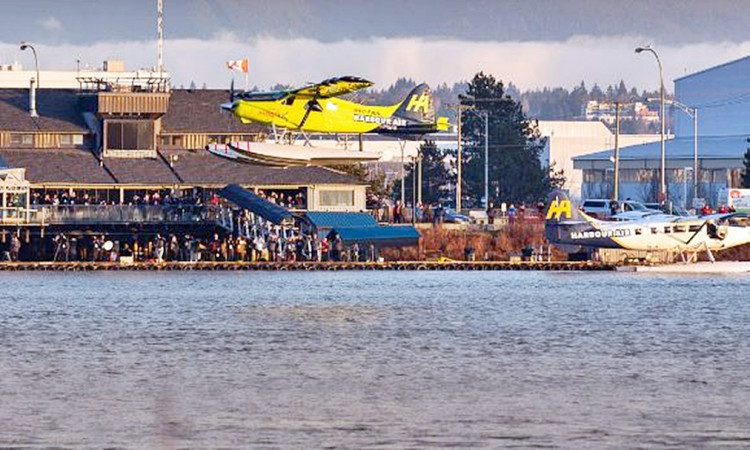The world's first commercialthe aircraft powered by an electric engine made its first test flight in Canada on Oct. 10, heralding the beginning of commercial e-flights.
This fully-electric aircraft that will later go on commercial flights is a six-passenger de Havilland Canada DHC-2 Beaver seaplane retrofitted with a 750 horsepower electric motor built by magniX. This "eBeaver," as it's being called, is the world's first all-electric, zero-emission commercial aircraft. It's operated by Harbour Air Seaplanes, the largest seaplane airline in Canada and the United States and the first to be fully carbon-neutral.
Piloting the eBeaver on this historic test f,light was Harbour Air CEO Greg McDougall. He took-off on a seven minute-long, early morning flight from the Vancouver International Airport's South Terminal on the Fraser River in Richmond, British Columbia.
Owned by Singapore-based conglomerate Clermont Group, magniX is an electric motor maker founded in 2009 in Australia to do research on electric motor technologies. Its headquarters are in Redmond, Washington. The de Havilland Canada DHC-2 Beaver is a single-engined high-wing propeller-driven short takeoff and landing (STOL) utility and passenger aircraft produced from 1947 to 1967. It can ferry a pilot, six passengers and 2,100 lb (953 kg) of useful load.
The engine of the eBeaver is the magni500, which was unveiled at the Paris Air Show last June. This electric engine generates 560kW or 750 HP.
"Today, we made history," said McDougall shortly after piloting the test flight himself. "I am incredibly proud of Harbour Air's leadership role in re-defining safety and innovation in the aviation and seaplane industry. Canada has long held an iconic role in the history of aviation, and to be part of this incredible world-first milestone is something we can all be really proud of."
He announced plans to electrify his company's entire fleet of 40 planes in partnership with magniX. Harbour Air operates routes between hubs like Seattle and Vancouver. It carries more than 500,000 passengers on 30,000 commercial flights every year.
MagniX and Harbour Air said they will now begin the certification and approval process for both the engine and the retrofitting of aircraft. They hope to be operating an all-electric commercial fleet within two years.
Roei Ganzarski, CEO of magniX, said the electric era of aviation is coming. He pointed out the transport industry is "ripe for a massive disruption."
"Now we are proving that low-cost, environmentally friendly, commercial electric air travel can be a reality in the very near future," he said.






